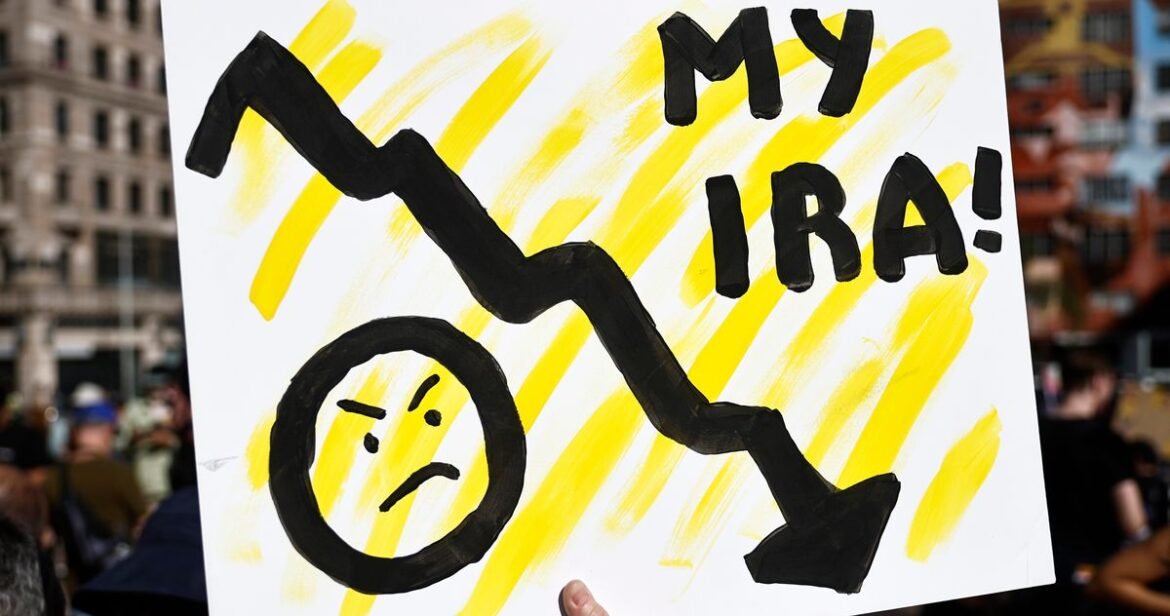As the New York Times reported Sunday, there are even concerns there could be another collapse:
Hedge funds tallied up their losses, and bragged if they only lost a little. Bankers and lawyers tore up already sparse calendars for deal making, reasoning that no chief executive would risk a big merger or public offering soon. Major banks played out emergency scenarios to guess whether one client or another would fail in the cascading effects of an international trade war.
In conversations with The New York Times over the weekend, bankers, executives and traders said they felt flashbacks to the 2007-8 global financial crisis, one that took down a number of Wall Street’s giants. Leaving out the brutal, but relatively short-lived market panic that erupted at the start of the coronavirus pandemic, the velocity of last week’s market decline — stocks fell 10 percent over just two days — was topped only by the waves of selling that came as Lehman Brothers collapsed in 2008.
Like then, the breadth of the sudden downdraft — with oil, copper, gold, cryptocurrencies and even the dollar caught up in the sell-off — has Wall Street’s biggest players wondering which of their competitors and counterparties was caught off guard. Banks have asked trading clients to post additional funds if they want to continue borrowing money to trade — so-called margin calls that haven’t nearly reached the level of a generation earlier but are nonetheless causing unease.
Bloomberg also spoke with some of the shellshocked:
“I’ve learned to cope with stress over the years,” says Richard Steinberg, “but at 4 o’clock in the morning, I’m up awake thinking about these things.” At Focus Partners Wealth in Boca Raton, where Steinberg is a senior wealth adviser, the calls from worried clients keep coming, he says. He tries to calm them down but acknowledges he himself is frustrated — “very frustrated” — by Trump’s approach. “It lacks a level of sophistication.”
Over in midtown Manhattan, Jay Hatfield, the CEO of Infrastructure Capital Advisors, was feeling much the same, just with a large dose of anger mixed in. “This is unambiguously stupid.” He calls the big tariff chart that Trump brandished at the ceremony that day “the chart of death,” and when he saw it, told himself to check his anger and just focus on unloading risky assets. By the end of Friday, he had cut about 40% of them from the mutual funds he manages. …
“It’s a five-alarm fire,” Hatfield says. “There’s no argument for creating a trade war whatsoever.”

